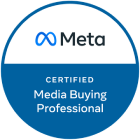Sections
eCommerce Store Options
You’ve got the perfect brand name. You’ve got your products. Now all you need is a website.
When it comes to building an eCommerce store, great news: you’ve got options — maybe too many options.
Don’t worry. Below we share everything you need to know about the best eCommerce store platforms you have to choose from. You’ll have no problem narrowing your options after you read this!
Shopify
Shopify is one of our favorite eCommerce platforms. It offers a straightforward way to launch and manage your online store, and it’s easy to scale for both small and large eCommerce businesses. We used it to build a website for our sister brand Roam Often:
Customization and Design Options: Shopify has a variety of free, well-designed templates for you to choose from, all of which are mobile-friendly. Or, you can create your own or buy one. As for functionality, you can customize your store either using custom code, or by adding one of their thousands of supported eCommerce apps (some are free, and some are paid).
Ease of Use: Shopify has a clean, user-friendly interface that makes it easy to figure out how to build your store. If you get stuck, they have tons of beginner guides and documentation, and a 24/7 support team you can reach anytime.
Pros:
- Shopify handles the creation and application of product categories really well.
- The Shopify Buy Button works with existing websites that use another platform (like WordPress).
- Shopify includes blog functionality built-in, so you can spin up a content marketing strategy to promote your products.
- Multi-currency options are available, as is abandoned cart save functionality.
- Shopify even has a mobile app, so you can manage your store on the go!
- If you use their built-in payment process system (Shopify Payments), there are no transactional fees.
Cons:
- If you don’t use Shopify Payments, you will be charged transactional fees to use a third-party service.
- There is no way to automatically ensure product images are using the same aspect ratio, so you will need to ensure you crop your images before uploading so they match.
- The professional reporting functionality is only available on the more expensive plans.
- Shopify’s URL structure is not ideal for SEO.
Price: Plans range from $29 to $299 per month, with a 14-day free trial. The Shopify Lite plan is one of the most affordable hosted solutions to sell online.
WooCommerce
WooCommerce is free open source software that offers eCommerce functionality through the popular WordPress platform. It caters to a range of users, from first-time store owners to old-timers.
Customization and Design Options: WooCommerce has thousands of themes to choose from, so you’ll easily find one that matches your brand colors and style. From your header to your footer, you can customize all sections of your WooCommerce theme — even the checkout screen — thanks to access to your theme’s CSS, HTML, and PHP style code.
Ease of Use: WooCommerce is generally user-friendly, but it’s most intuitive for those who already have experience using WordPress. There are plenty of helpful articles and guides for you to read, along with a very active user forum.
Pros:
- WooCommerce is extremely flexible. You can configure your eCommerce store to sell physical, virtual, or downloadable products.
- WooCommerce also offers store owners optimal security. The software is regularly updated to meet the latest cybersecurity standards.
- It includes all the SEO-friendly options you need, from customizable URLs to metadata markup.
Cons:
- Certain WooCommerce extensions and themes require a one-time or monthly payment.
- WooCommerce doesn’t include any site backup tools out of the box, so you’ll need to purchase that separately.
- While WooCommerce is prized for its extensive extension library, if you use too many of them, it can cause speed and performance issues.
- The setup process can be challenging for beginners, especially those unfamiliar with WordPress.
- Because WooCommerce is free and open-source, there’s no central support team (unlike with Shopify or Squarespace). Every theme, plugin, and hosting you use comes with their own support channels you’ll need to reach out to separately.
Price: WooCommerce is completely free, but you may have to pay for different extensions or themes.
Squarespace
We’re sure you’ve seen the commercials, or heard the podcast ads, so you already know: Squarespace is definitely the most beautiful of your eCommerce store options.
Customization and Design Options: You can choose from over 100 easy-to-use templates. All of the templates are optimized for mobile, and can be customized using drag-and-drop functionality — no coding necessary. Squarespace also offers a logo design app you can use to create a custom logo for your eCommerce store.
Ease of Use: Squarespace was designed to be user-friendly, but it definitely has a learning curve. Unlike some other eCommerce platforms, there’s no autosave feature when you are designing pages. There’s also no preview ability — once you save your changes, they publish to your live site. Plus, not all themes offer the same features, which can be confusing. Although, they do have a large library of support articles, along with a support team you can contact 24/7.
Pros:
- Squarespace includes a lot of non-website functionality that allows you to manage multiple parts of your eCommerce business from the same platform, such as email marketing, blog functionality, and even the ability to host your own podcast!
- Squarespace is known for its gorgeous templates and overall future-forward design. With Squarespace, you can use innovative website features like video backgrounds, and access free stock images through Unsplash.
- You can add pop-ups to your website to announce promotions, or gather emails for your store newsletter.
- All eCommerce plans include a free G Suite account for one year.
- Squarespace has a mobile app, so you can edit your website anywhere, anytime.
Cons:
- Squarespace isn’t the most SEO-friendly eCommerce platform. The SEO features can be difficult to find and use, and their templates typically score low on Google’s PageSpeed Insights tool which could cause a poor user experience and lead to a decline in search engine rankings.
- It’s also not set up for GDPR compliance, so you’ll want to invest in a third-party tool to set up cookie consent.
- Squarespace charges different transaction fees, depending on which plan you choose.
- There’s no multi-selling currency functionality, and tax rates are not automatically calculated.
- Squarespace currently only offers third-party email support for Mailchimp. No other email marketing services are currently supported.
- Content export functionality is not available.
Price: Plans range from $18 to $40 per month, with a 14-day free trial.
BigCommerce
BigCommerce is an enterprise-ready eCommerce platform, with options for small and large online stores, with options for wholesalers, resellers, and B2B eCommerce sites.
Customization and Design Options: Bigcommerce has nearly 100 themes for you to choose from, all of which can be customized.
Ease of Use: The BigCommerce customer service team is super helpful, and there’s a large knowledge base of educational articles you can browse. It’s very easy to create custom fields in BigCommerce, but the layout for content isn’t super intuitive.
Pros:
- There are no transaction fees with BigCommerce, which is nearly unheard of in the eCommerce platform space.
- Since it’s designed for large stores, BigCommerce already includes a lot of the features they need, like built-in cookie consent for GDPR compliance, support for multiple currencies, and blog functionality.
- BigCommerce also includes reporting tools, product reviews, and abandoned cart saving functionality out-of-the-box. For everything else you need, you can use their integrated marketing tools.
- BigCommerce is very SEO-friendly.
- BigCommerce is fast and secure (although not quite as fast as Shopify).
- There’s no limit on product variants.
Cons:
- While it supports multiple currencies, BigCommerce doesn’t support multilingual sites yet.
- BigCommerce offers fewer free theme options than other eCommerce platforms, and many of them look very similar to one another.
- The app marketplace is currently pretty limited, but it is growing.
- If your annual online sales exceed your plan’s limit, you have to upgrade to a more expensive one.
Price: Plans range from $29.95 to $299.95 per month, with a 15-day trial.
Magento
Like WooCommerce, Magento is another open-source platform designed for eCommerce. It’s the most feature-rich, and also the most complex, of all the platforms on our list.
Customization and Design Options: Because Magento is open-source, you can modify the source code and create custom templates for your eCommerce store. All Magento themes are mobile-friendly.
Ease of Use: Magento is not beginner-friendly. It’s a very complex platform, so it’s best for sellers who plan on hiring a developer to stand up and manage the site. Magento has a huge resource library and active forum. There’s also Magento U, where you can become an expert at Magento.
Pros:
- Magento makes enterprise-level eCommerce available for all sellers using its platform, with the ability to manage multiple stores, locations, languages, pricing, and currencies.
- Magento has a large library of extensions and plugins you can use to enhance or add to the functionality of your e-Commerce store.
- Magento is designed to be easily scalable, and grow with the needs of your online store
- Magento is SEO-friendly.
Cons:
- Magento can be known for slow loading time, which makes customizations frustrating.
- Customizations also require complex coding, which is time-consuming.
- Magento’s performance depends heavily on your hosting provider. This is a unique downside to Magento not shared by many of the others on our list, like Squarespace and Shopify, who provide their own eCommerce hosting.
- Magento is very expensive.
Price: While there is a free version of Magento, most new online stores need at least the Magento Commerce Starter, which costs around $2,000 per month.
Best eCommerce Store Options for Resellers
Are you building an eCommerce site as a reseller?
In our opinion, eCommerce stores are still the better option for resellers vs. selling on a marketplace (like Amazon), as you have more control over the look and feel of your store and can really build your brand awareness. Marketplaces also have rules and guidelines to follow. When you set up your own eCommerce store, you have full control and no rules except your own!
With your own eCommerce store, you also unlock the benefits of being able to retarget shoppers for repeat purchases, collect their email addresses for your promotional newsletter, and more. Plus, you won’t be competing against products from your competitors like you would be on Amazon or eBay.
For resellers, we recommend using Shopify or WooCommerce. Shopify is a popular choice for resellers, since it’s the easiest to use and largest eCommerce platform. You can quickly set up and launch your store.
WooCommerce is another good option for resellers since it is fairly easy to use and provides more control. This free WordPress plugin transforms your site into an eCommerce platform. However, it does require some experience so Shopify would be the better option for beginners — especially if you are in a time crunch.
While we prefer eCommerce platforms, marketplaces do offer a few distinct benefits for resellers. You don’t have to set up an entire store, and you also don’t have to do much to bring in traffic. Customers already go to marketplaces to shop, so it’s a matter of making your product pages as attractive as possible, beating your competitors on price and value, and getting good reviews.
If you choose to use a marketplace to resell, you can’t go wrong with Amazon. Amazon makes it simple to list your products and get up and running quickly. However, keep in mind Amazon is highly competitive. There will be many similar products to yours, as Amazon places no real limits on how many resellers can offer the same products. As a result, remaining profitable over your competition may be challenging, which is why we recommend creating your own eCommerce store.







